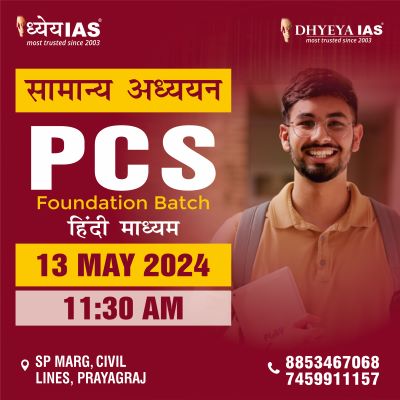Context-
At the COP26 climate talks in Glasgow in November 2021, India pledged to achieve net-zero emissions by 2070, positioning itself as a frontrunner in the race to carbon neutrality. According to the Ministry of New and Renewable Energy, India had installed a renewable energy capacity of over 180 GW by 2023 and is expected to meet its target of 500 GW by 2030.
Overview of Black Carbon
Black carbon, often referred to as soot, is a potent pollutant emitted during incomplete combustion of biomass and fossil fuels. It is characterized by its dark, fine particulate matter, and it poses significant environmental and health risks. Understanding black carbon is crucial in tackling global warming and mitigating its adverse effects on human health.
Examining the sources and impacts of black carbon is essential for devising effective strategies to mitigate its effects.
In India, the residential sector contributes 47% of black carbon emissions, followed by industries (22%) and diesel vehicles (17%).
Sources of Black Carbon Emissions
Black carbon emissions originate from various sources. Traditional cookstoves burning biomass fuels like cow dung and straw are major contributors, particularly in rural areas. Additionally, industries, diesel vehicles, open burning, and other sources collectively contribute to India's black carbon emissions profile.
Impact on Environment and Health
The environmental and health impacts of black carbon are profound. Not only does it contribute to global warming by absorbing sunlight and reducing albedo, but it also poses serious health risks to human populations. Exposure to black carbon is linked to cardiovascular diseases, birth complications, and premature death, making it imperative to address this pollutant for the well-being of both the environment and society.
Role of Pradhan Mantri Ujjwala Yojana in Black Carbon Reduction
Launched in May 2016, PMUY aims to provide free LPG connections to households below the poverty line. Over 10 crore households have been provided connections as of January 2024. PMUY has led to a significant decrease in black carbon emissions by promoting the adoption of LPG as a cooking fuel.
The Pradhan Mantri Ujjwala Yojana (PMUY) has emerged as a critical initiative in India's efforts to reduce black carbon emissions and transition to cleaner cooking fuels. Understanding the mechanisms and impact of PMUY is essential for evaluating its effectiveness in achieving its objectives.
● Overview of Pradhan Mantri Ujjwala Yojana
By offering clean cooking fuel alternatives to traditional biomass, the program seeks to improve health outcomes, reduce environmental pollution, and enhance the quality of life for rural and economically disadvantaged populations.
● Impact on Black Carbon Emissions
PMUY has played a significant role in reducing black carbon emissions by promoting the adoption of LPG as a cooking fuel. By providing free LPG connections, gas stoves, and facilitating access to LPG cylinders, the program has incentivized households to transition away from traditional biomass fuels. This transition has contributed to a decrease in black carbon emissions from the residential sector, thus mitigating its adverse environmental and health effects.
● Challenges and Opportunities
Despite its successes, PMUY faces challenges such as low refill rates and affordability issues, particularly in remote rural areas. Addressing these challenges requires innovative solutions, including enhancing last-mile connectivity in LPG distribution networks and exploring alternative fuel production methods like coal-bed methane (CBM) gas. Leveraging local resources and community involvement can unlock opportunities to overcome these obstacles and further reduce black carbon emissions.
Government Policies and Strategies for Black Carbon Mitigation
The government's role in addressing black carbon emissions extends beyond individual initiatives like PMUY. Understanding broader policy frameworks and strategies is crucial for comprehensively tackling black carbon pollution and advancing sustainable development goals. India aligns with global climate goals and participates in initiatives like COP26 for international cooperation in black carbon mitigation.
● Policy Measures to Promote Clean Cooking Fuels
In addition to PMUY, the government has implemented various policy measures to promote clean cooking fuels and reduce black carbon emissions. These include subsidies for LPG cylinders, increasing awareness about the health and environmental benefits of clean cooking, and investing in infrastructure for LPG distribution and accessibility.
● Challenges in Implementation and Way Forward
While policy measures have made significant strides in promoting clean cooking fuels, challenges persist in their implementation and effectiveness. Affordability, accessibility, and last-mile connectivity remain key areas of concern, particularly in remote rural regions. Addressing these challenges requires a multi-faceted approach involving stakeholders at various levels, innovative solutions, and sustained government commitment to black carbon mitigation efforts.
● International Cooperation and Commitments
India's efforts to mitigate black carbon emissions are not confined to domestic initiatives but extend to international cooperation and commitments. By aligning with global climate goals and participating in initiatives like COP26, India demonstrates its commitment to addressing black carbon pollution on a global scale. Collaboration with international partners, knowledge sharing, and technological innovation are essential components of India's strategy for black carbon mitigation on the global stage.
Conclusion
In conclusion, black carbon emissions pose significant environmental and health risks, particularly in countries like India where traditional biomass fuels are widely used for cooking. Initiatives like the Pradhan Mantri Ujjwala Yojana play a crucial role in transitioning to cleaner cooking fuels and reducing black carbon emissions from the residential sector. However, addressing the challenges of affordability, accessibility, and last-mile connectivity requires concerted efforts from government, communities, and other stakeholders. By implementing comprehensive policies, promoting innovation, and fostering international cooperation, India can achieve significant progress in mitigating black carbon emissions and advancing sustainable development goals.
|
Probable Questions for UPSC Mains Exam- 1. How does the Pradhan Mantri Ujjwala Yojana (PMUY) strategically contribute to the reduction of black carbon emissions in India, particularly in rural areas, and what specific mechanisms within the program facilitate this transition towards cleaner cooking fuels? ( 10 Marks, 150 Words) 2. In what ways do the challenges encountered in implementing policies aimed at reducing black carbon emissions, such as affordability, accessibility, and last-mile connectivity, hinder the effectiveness of initiatives like PMUY, and how can innovative solutions address these multifaceted obstacles to ensure broader success in mitigating black carbon pollution? (15 Marks, 250 Words) |
Source- The Hindu
























